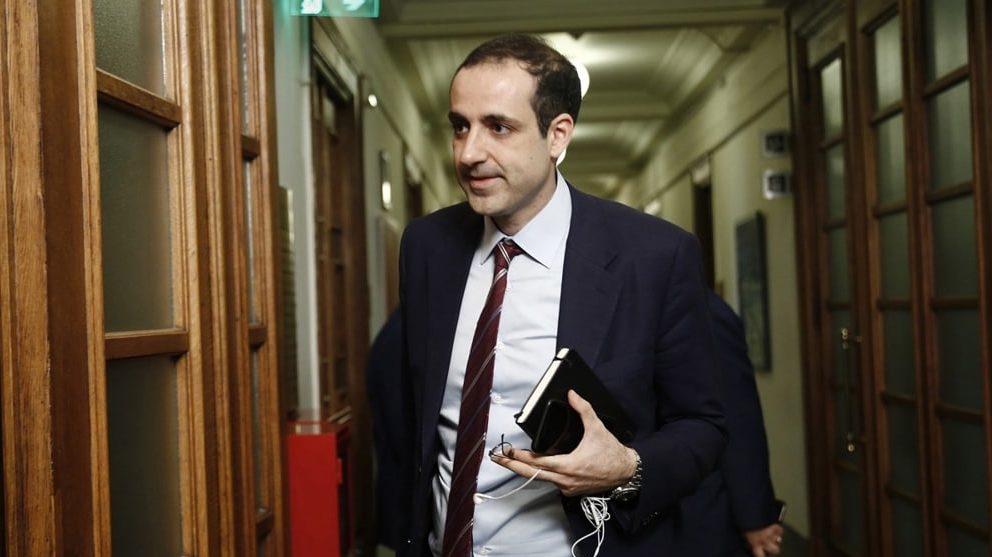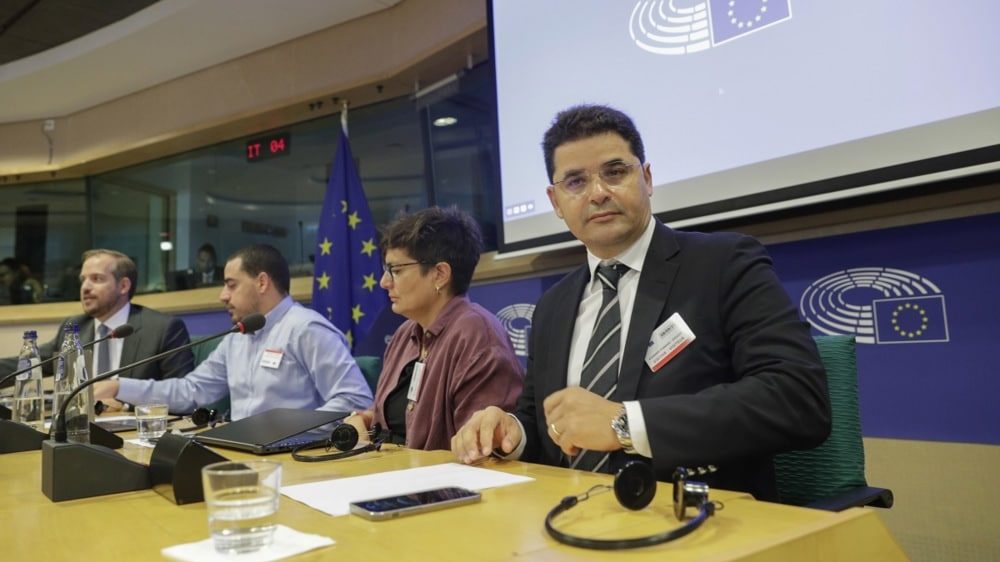
Photo based on the work of Christopher Burns.
Southeast Europe and Hungary have seen an alarming rise in digital rights violations, particularly during periods of domestic political turbulence, elections, and regional and international upheaval, according to the latest annual report by BIRN.
The Digital Rights Violations report 2022-2023, presented in the Bosnian capital Sarajevo on Tuesday, covers Albania, Bosnia and Herzegovina, Croatia, Hungary, Kosovo, Montenegro, North Macedonia, Romania, Serbia and Turkey.
Monitoring the period September 1, 2022 to August 31, 2023, BIRN registered 1,427 cases of digital rights violations, almost double the previous tally of 782.
The report reflects the complex nature of digital rights challenges in the region, highlighting the role of governments, the weakness of legislation, and the targeting of vulnerable groups.
Most violations involved hate speech, discrimination, digital manipulation, and computer fraud.
“Domestic, regional and international political developments had a direct impact on digital rights violations,” the report states. “During domestic crises and elections, digital rights violations spiked, as they did at times of regional and international tensions.”
Surge in disinformation
Individuals were among the most common victims and perpetrators, committing more than 500 violations during the monitoring period, followed by anonymous perpetrators hiding behind fake identities.
However, BIRN also registered numerous violations committed by online media, public figures, and politicians. State institutions were more often victims, sometimes of severe data breaches such as that perpetrated by a hacker group operating under the name Homeland Justice and targeting Albania’s parliament in late 2022 and early 2023.
BIRN editor Ivana Jeremic highlighted the concerning trend of gender-based violence in the digital space, citing in particular the murder in Bosnia of a woman by her husband, who live-streamed the killing on Instagram.
“Not only did the video remain online for hours, but people interacted with it, some even showing support, which was devastating for the family of the woman,” Jeremic said.
Identified cases per country
Kosovo – 191
Montenegro – 177
Romania – 169
Bosnia and Herzegovina – 157
Albania – 156
Hungary – 154
North Macedonia – 144
Croatia – 134
Serbia – 103
Turkey – 42
A research paper by Anes Cerkez, looking at youth-specific digital rights violations and also presented by BIRN on Tuesday, highlights a number of distressing cases, including one of cyber-bullying that led to the suicide of a 22-year-old man in Bosnia in October 2022. There were also instances of child pornography, underscoring the need for enhanced media literacy education for young people as well as their parents.
Since Russia’s full-scale invasion of Ukraine in February 2022, disinformation campaigns have surged globally. Among the targets was Romania’s army, with the defence ministry warning in March this year of false posts on TikTok and Instagram about men being mobilised.
In the Serb-majority north of Kosovo, ethnically-charged incidents over the summer heightened tensions. Attacks on journalists critical of Serbia’s ruling party or the Orthodox Church increased, fuelled by violent confrontations between local Serbs and NATO-led peacekeepers.
North Macedonia witnessed continued ethnically-motivated hate speech as well as discriminatory statements targeting the LGBT community. This included hate speech spread by TV host Milenko Nedelkovski on Facebook concerning a journalist of Albanian origin.
In Montenegro, minority groups, primarily Serbs and the Serbian Orthodox Church, experienced targeted online hate speech in over half of the 26 registered cases. Bosniaks and Muslims also faced ethnic intolerance, with incidents involving the public, media outlets, and public figures amplifying discriminatory narratives.
AI ‘deep fakes’
Jeremic also highlighted the “numerous violations” following a May 2023 mass shooting at a Belgrade elementary school, when police disclosed the identity of the 13-year-old perpetrator and the personal data of his parents. There were also numerous examples of fake news following the shooting.
A new trend identified by BIRN involved the use of artificial intelligence to create ‘deep fakes’ and generate fake news. “The lack of regulation in the region leaves it to readers and platforms to deal with this kind of content,” Jeremic said.
Legislation that should protect digital rights remains inadequate in many of the countries monitored, while some government utilised new laws to target critics and independent media.
Cyber violence against women persisted due to legal gaps and data collection shortcomings.
The cases and data on them can be found in BIRN’s database, established in 2020 in partnership with the SHARE Foundation.

















